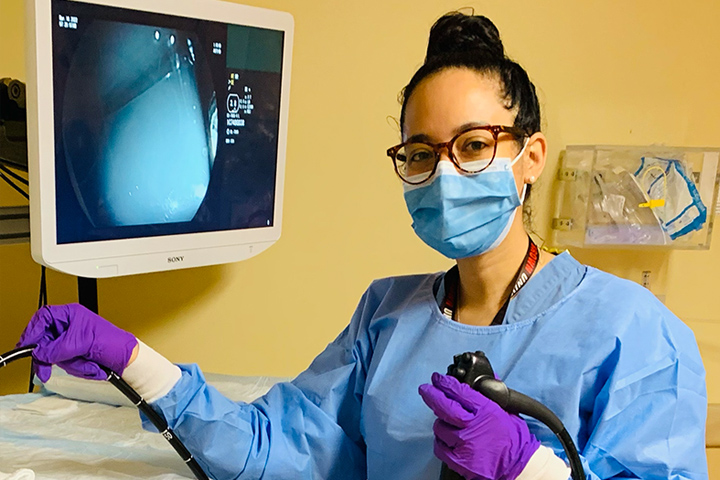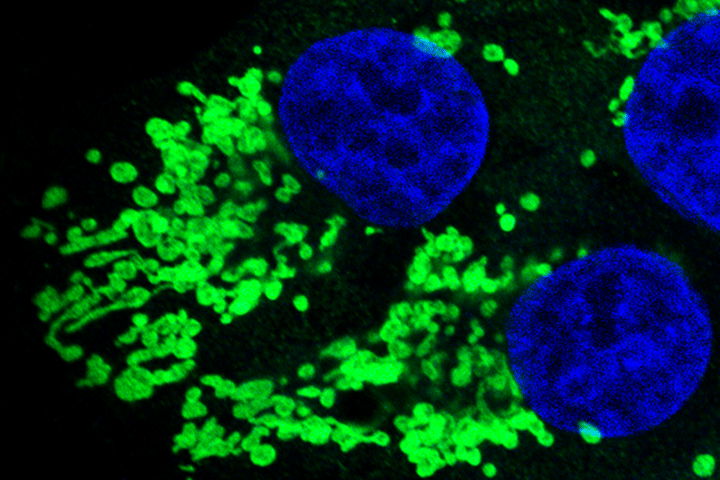New Study to Get More Minorities Involved in Genetic Testing

It’s no secret that research trials have a recruitment problem. Take cancer clinical trials.
Estimates from a study published in 2018 show that about 25 percent of cancer trials fail to meet enrollment and about 18 percent of trials close because they recruit fewer than half of the participants they need after three or more years. It’s also no secret that patients who do enroll in these trials are overwhelmingly white and have private insurance.
Pancreatic cancer is not an exception to these troubling statistics. A study published in Gastroenterology by researchers at Virginia Commonwealth University (VCU) Massey Cancer Center and University of Florida Health shows Black, Hispanic, Indigenous, and Asian Americans remain conspicuously absent from pancreatic cancer clinical trials.
This is an era in which molecular profiling and personalized medicine are taking center stage in pancreatic cancer research. A study dubbed GENERATE, short for the GENetic Education, Risk Assessment, and TEsting study (no longer recruiting participants), is aimed at healthy people with a family member who has been diagnosed with pancreatic cancer. Its goal is to teach individuals about their risk of pancreatic cancer, have them learn about genetic testing and its benefits, and then assist them with the genetic testing process if they choose to move forward. The study design has a strong remote “online” component, making it extremely accessible to participants across the United States.
Unlike many studies, GENERATE met its target enrollment despite being conducted during the COVID-19 pandemic. And, the participants overwhelmingly followed up with genetic testing—a 90 percent uptake. However, the study also failed to recruit historically marginalized communities, including Black, Latino/a/x, Asian American and Pacific Islander as well as Native American/Alaskan Native participants.
“We were thrilled to meet recruitment goals, but less thrilled with the low numbers of historically marginalized groups enrolled,” says Nicolette Rodriguez, M.D., M.P.H., the project lead of a new study called REGENERATE, short for Racial/ethnic Equity in GENetic Education, Risk Assessment, and TEsting.
That clever name is no coincidence. “REGENERATE stems from the incredible work that was done with the GENERATE study,” says Rodriguez, a gastroenterology fellow at Boston’s Brigham and Women’s Hospital as well as a postdoctoral research fellow in the Division of Cancer Genetics and Prevention at Dana-Farber Cancer Institute (Boston), under the mentorship of Sapna Syngal, M.D., M.P.H., the principal investigator of both the REGENERATE and GENERATE studies.
Rodriguez continues, “Pancreatic cancer is a horrible disease. But it’s well known that for Black Americans the incidence and mortality rate of pancreatic cancer is higher than in any other racial or ethnic group in the United States. Black Americans and Latino/a/x communities also have lower rates of surgical resection and have lower survival rates compared to white populations.
“About 1 in 10 patients diagnosed with pancreatic cancer carry a genetic alteration associated with an increased risk of pancreatic or other cancer types, so if family members learn they may be at risk for pancreatic or other cancer types, they have more opportunities to take action. The goal is to intercept people who are at risk for the disease at the earliest time possible. Historically marginalized populations are missing out on this, and our goal is to find out why and then change that dynamic.”
About the Study
National guidelines recommend that all pancreatic cancer patients undergo genetic testing for inherited mutations. First-degree relatives (child, parent, or sibling) of someone diagnosed with pancreatic cancer are also recommended to undergo genetic testing for inherited risk if their family member was found to have a mutation or if their results are unknown.
“Among the Black and Latino/a/x communities there are some significant barriers that make it difficult to access services,” says Rodriguez. “Genetic testing can be frightening and confusing for anyone, making effective communication all the more important. We need to also be aware that there is a long history of founded medical mistrust among these groups.”
The REGENERATE study will use principles from community-based participatory research and invite involvement from key stakeholders through every phase of the study. This includes focus groups among Black and Latino/a/x individuals and Black and Latino/a/x community leaders through a video conferencing platform. These focus groups will help evaluate knowledge, awareness, and perceived barriers and enablers (things that impede access or make it easier) to obtaining genetic testing and cancer screening services. The groups will also help researchers assess views of genetic education, genetic testing, and screening/surveillance for pancreatic cancer. The team will also investigate participants’ perceived internet literacy for accessing health information, cancer worry/risk perception, and level of medical mistrust.
In Phase One, participants will be compensated $50.00 after the completion of all questionnaires and participation in a focus group. Phase Two participants will also be compensated $50.00 after the completion of the one-on-one usability testing interview and completion of the post-interview questionnaire.
“Our virtual approach worked for white participants, so the real question becomes why didn’t it work for historically marginalized populations and how can we do better?” says Rodriguez. “We want to promote trust and address barriers including language concordance, missing work, problems with travel, and finances that might stop someone from joining a study.
“But as researchers we need to take responsibility, too, and provide appropriate accommodations in research to help improve access to care. For example, having representative study materials and a diverse research staff. If we are going to make headway, we need to meet people where they are.”
The REGENERATE study is funded by Pancreatic Cancer Action Network (PanCAN). If you are interested in participating in focus groups for this study, you must either 1) identify as Black or Latino/a/x and have a personal or family history (first-degree or second-degree relative) of pancreatic cancer OR 2) identify as any race or ethnicity and be a community leader that serves predominantely Black and/or Latino/a/x communities. All participants must also be 18 years old or older, have internet access, and live in the United States.
As a first-generation Latina of Colombian and Puerto Rican descent, Rodriguez is no stranger to problems caused by medical misunderstandings among an immigrant population. “I remember a family member was scheduled for a colon surgery and the evening before the surgery, right around midnight, they were eating steak and potatoes. English was not their first language, and had the surgery and colon prep been explained in Spanish, this could have been avoided.
“If someone isn’t given information in a way they can understand, we are simply not providing equitable patient care. We need to continue working towards providing equitable access to genetic education and cancer prevention strategies among historically marginalized communities, including Black and Latino/a/x populations at risk for pancreatic cancer.”
For more information or to join a focus group contact REGENERATE@DFCI.harvard.edu.





